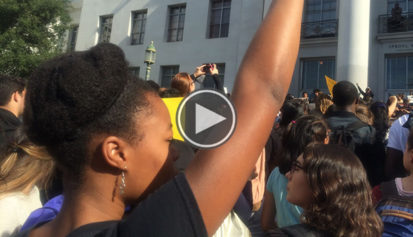It’s almost impossible to avoid a video of groups doing the “Harlem Shake” (at least the newest version of it) across the internet, but some students are finding that their 30-or-so seconds of online fame is coming at a fairly high cost.
“It seems a rather disproportionate response by educators to something that, at most, I would characterize as teenage hijinks,” Bertin said.
All technology shifts that give individuals a larger audience — from the printing press on, Bertin said — tend to make authority figures uncomfortable. More student censorship issues have emerged as young people gain more access to outlets for expression, such as the ability to post videos to YouTube, publish their thoughts on personal blogs and spread ideas through social media like Facebook.
“We do see more of these situations and they will probably continue to increase until clearer legal rules emerge,” Bertin said.
Schools, for example, have suspended students and teachers because of material posted on their social media accounts, even when the activities took place outside of school hours and off school property.
“With more forms of expression, there are more reasons to engage in censorship if the people in charge are uncomfortable with forms of expression that younger generations are using,” she said.
Educators have struggled with their role in policing online behavior, particularly when it comes to issues such as “cyberbullying” and general online safety as students move behavior that once could have been regulated in the hallways to the digital world.
Read More: washingtonpost.com
